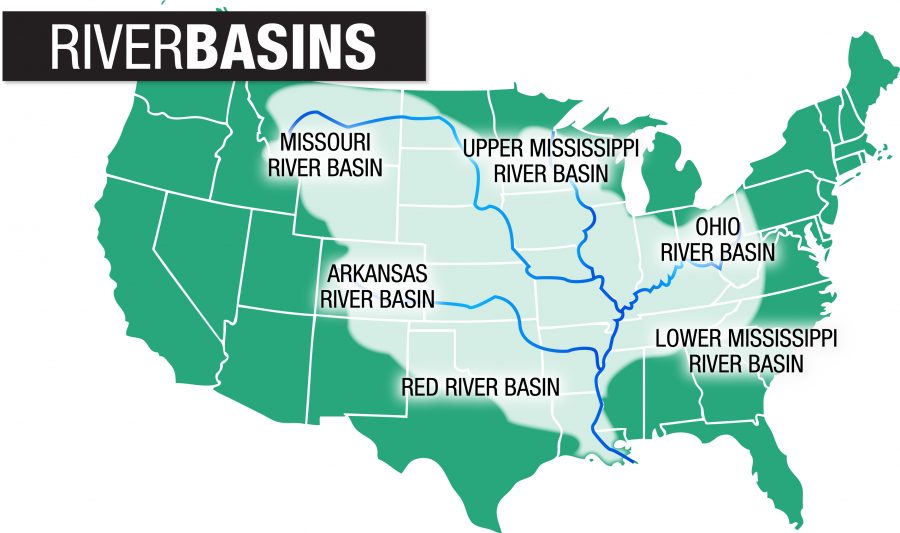For 75 minutes every Monday and Wednesday, Ellen Spears, an assistant professor of American studies at The University of Alabama, instructs students on a new perspective on Southern history: its ecology.
The course, cross-listed in the departments of both American studies and New College, is titled Landscapes of the South. Spears said it focuses primarily on the ecology, culture and environmental issues surrounding the Mississippi watershed, from St. Louis, Missouri, to the river’s end at the Gulf of Mexico, just east of New Orleans, Louisiana.
“I taught courses in the past about the Mississippi, and students were interested in studying places where they were born or where they had relocated,” Spears said. “There are many different ‘souths,’ so it was logical to broaden it to include the entire South.”
First taught in Fall 2010, the course looks at the impact of events such as the 1927 flood and hurricanes Katrina and Rita, and examines human interventions and historical aspects of the Delta region as a whole.
Timothy Ficken, a junior majoring in American studies, previously took Spears’ Urban Spaces course and said the two classes are similar in some aspects.
“It’s the same kind of class as Urban Spaces, but with more focus on nature rather than cities,” he said. “It’s more about the environment and how we interact with it.”
Spears said the course includes several books, including Jack Temple Kirby’s “Mockingbird Song,” and delves into the river and Gulf Coast areas while also providing insight into the Southern ecological landscape.
“It’s a very writing-intensive class, but students get to write about places they know,” Spears said. “Students have looked in at anywhere from the Gulf Coast to southern Louisiana, all the way up to the Tennessee Valley Authority.”
Ficken said the class provides good opportunities for discussion, with reading and papers intermixed.
“It’s a different kind of class,” he said. “There’s lots of reading and lots of theoretical-based discussion. We look into the reasons why we’ve tried to manipulate the landscape and what happens because of it.”
Spears said the course has received positive feedback since its inception.
“Students are really interested in learning about the ecology and land of these areas, regardless of if they’re from in-state or out-of-state,” Spears said. “We also look at how they’ve been portrayed in art, film and photography.”
Ficken said the course offers a different perspective on the region.
“We read a piece on the different ways we were trying to manipulate the Mississippi, how it worked and how it didn’t,” Ficken said. “It shows how when we think we can try to control something like the Mississippi, we end up changing the landscape.”
Spears, who recently published “Baptized in PCBs: Race, Pollution, and Justice in an All-American Town,” said the course’s success is due to the experiences students can bring.
“Student involvement is what really makes this class,” Spears said. “It’s when students bring in their own experiences and research that the class is really succeeding.”









